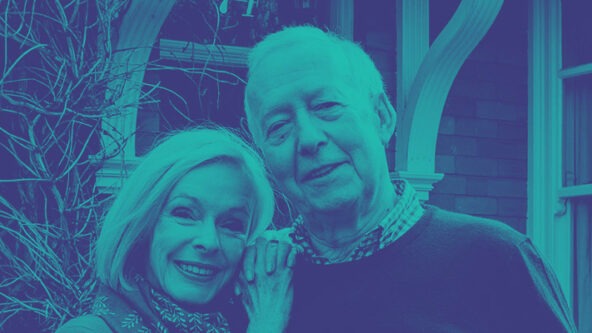Most of us dread the thought of confrontation, and finding yourself in a civil or commercial dispute, for whatever reason, can be extremely stressful, time consuming and costly. Even seemingly small issues, if not nipped in the bud sooner rather than later, can have a way of escalating. Subsequently, this can worsen relationships of those in personal or commercial disputes or endanger the reputation or livelihoods of those involved in business related matters. Whilst it may seem like the only way forward is fighting it out in the courts, there are many alternatives to litigation that should be considered first. Furthermore, most courts will have expected parties to try and resolve matters via alternative methods before issuing a claim.
Recent figures released by the civil, family, and criminal courts have highlighted the increasing delays affecting cases being heard, with some taking more than a year to get to trial, so finding a different route to settle disputes outside of the courts, where appropriate, has never been more relevant.
We talk to Rachel Evans from our dispute resolution team regarding alternative dispute resolution and find a little bit more about her
What are the alternatives to litigation?
There are now various alternatives to litigation, like mediation and arbitration and for many years the UK Courts have been encouraging parties to settle disputes via way of Alternative Dispute Resolution (ADR). ADR includes various formats, which includes
- Mediation
- Arbitration
- Conciliation
- Adjudication
Each should be considered very carefully; they could result in the dispute being resolved or determined sooner rather than later – and therefore usually at less cost than going to court. Be wary of declining an offer to mediate just for the sake of having your “day in court”. This approach can backfire.
How effective is Alternative Dispute Resolution?
There is no doubt, if conducted correctly and if both parties are willing to communicate and compromise, that using alternative dispute resolution techniques will save you time and money. In a survey conducted by the Centre for Effective Dispute Resolution (CEDR) earlier this year, it showed that mediation’s overall success rate is extremely high. Over 90% of all cases settled and over 70% on the first day. In the same survey it calculated businesses and individuals save £4.6bn annually by using mediation.
Is Mediation Compulsory?
Currently mediation is only compulsory in divorce proceedings, (unless you can prove exemption) and in most other civil and commercial disputes it is still a voluntary exercise. Although, it is strongly encouraged, and the courts will take dim view of parties who bring a claim to court without attempting ADR first and can even penalise those who refuse (or ignore) an offer to mediate.
A report by the Civil Justice Council was commissioned to consider the legality and desirability of making ADR compulsory, which could result in ADR playing an even more prominent role in future. Responding to the report on ‘compulsory ADR’, Master of the Rolls Sir Geoffrey Vos said that ‘ADR should no longer be viewed as “alternative” but as an integral part of the dispute resolution process. That process should focus on “resolution” rather than “dispute”.’
However, the report does not offer any proposal of timings as to when any changes might come into place, or how these would be incorporated into the dispute resolution process. Our team are keeping track of any changes and will provide updates as an when new information emerges.
How has the pandemic and social distancing restrictions affected mediation?
The traditional model of mediation involves both parties attending a meeting with a Mediator, at one location, albeit in different rooms. During lockdown and social distancing restrictions, this was not possible so many Mediators offered the option of remote online mediations, via methods such as Zoom or Skype. Whilst online meetings do have some disadvantages, largely this proved to have a positive outcome in most cases, with advantages that included a faster process, reduced costs, and ease of access.
Can court cases be conducted remotely?
In some cases, yes. Courts were required to adapt very quickly at the height of the pandemic and the implementation of modernised systems was fast-tracked to allow for Remote hearings and virtual Trials. Whilst in certain cases there will always be a necessity for in-person participation, it is likely that virtual mediations or court hearings will continue to grow in popularity and become a permanent fixture.
How can Eric Robinson help with Dispute Resolution?
Whilst we have focused on mediation in this article, there is more than one way of resolving a civil or commercial dispute and it needn’t involve the courtroom. At Eric Robinson Solicitors our expert lawyers will explain all the options to you and help you explore the best one for you or your business. We’re experienced negotiators and tacticians. Therefore, our team is well placed to represent both individual and commercial clients across a wide range of legal matters.
Below we find out little more about Rachel Evans from our busy dispute resolution team.
Rachel Evans – Senior Associate
Rachel has over 25 years’ experience in dispute resolution and has been with Eric Robinson for over 15 years. She can advise on a wide range of civil and commercial disputes including contract and property disputes, company commercial disputes, maritime disputes, more recently specialising in disputes concerning Wills, trusts and estates, and disputed matters in the Court of Protection concerning the affairs of people who lack capacity.
What do you enjoy most about working with the Eric Robinson team?
R: It is a friendly and mutually supportive team who have a good depth and breadth of legal knowledge and experience. This makes it a good place to work and enables us as a team to deliver good solutions for our clients’ legal problems.
What made you choose a career in law?
R: Originally, I had intended to do a history degree but was persuaded to do a law degree instead. I then started my legal career in dispute resolution and never looked back. I found that I enjoyed the process of finding solutions to the clients’ legal problems.
What interests you most about specialising in dispute resolution?
R: I enjoy the challenge of building a persuasive legal case for the client. I also enjoy working with the client to problem solve and to try and facilitate an agreed settlement with the other party to the dispute.
What was your favourite subject at school?
R: Modern history.
Where is one of you favourite places to visit?
R: The Brecon Beacons and Pembrokeshire.
We have solicitors offices in Southampton, Hedge End, Chandlers Ford, Winchester, Lymington and Richmond-Upon-Thames.


